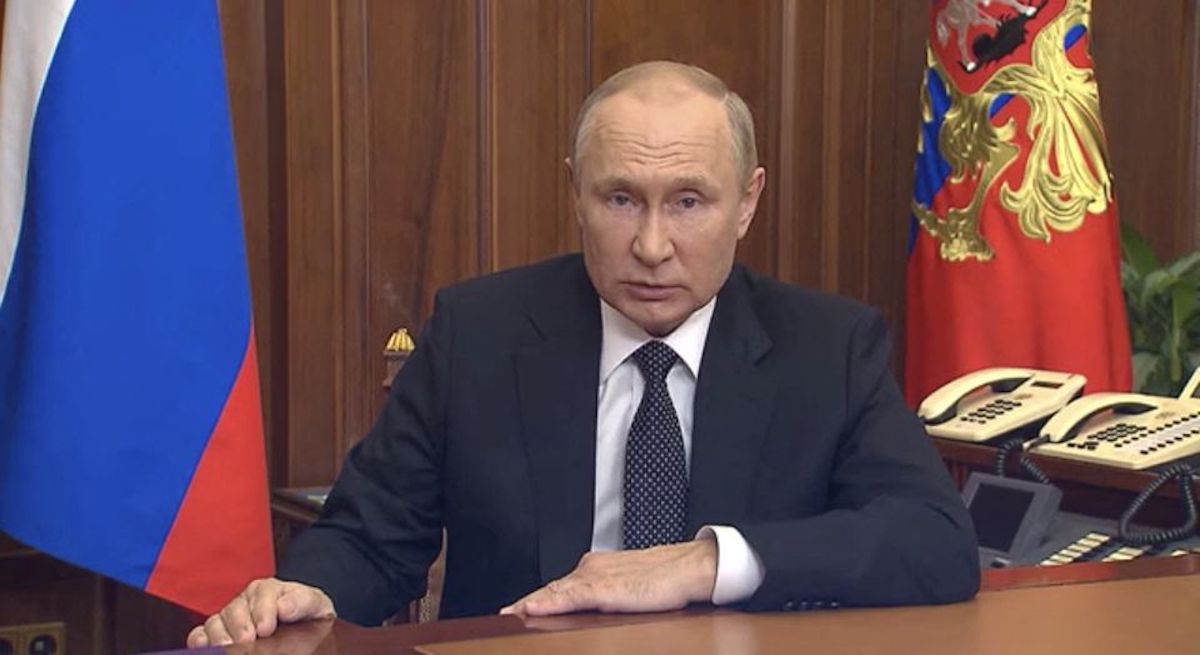Putin orders partial Russian mobilisation, warns West over nuclear blackmail


LONDON – President Vladimir Putin on Wednesday (Sept 21) ordered Russia's first mobilisation since World War Two and warned that Moscow would defend itself with the might of all its vast arsenal if faced with a nuclear threat from the West.
The blunt warning from Russia's paramount leader, whose country has more nuclear warheads than even US, marks the biggest escalation of the war since Moscow's Feb 24 invasion of Ukraine and was accompanied by a decision to call up 300,000 extra reservists.
"If the territorial integrity of our country is threatened, we will without doubt use all available means to protect Russia and our people – this is not a bluff," Putin said in a televised address to the nation.
He made the comments after accusing the West of "nuclear blackmail", saying that top government officials in several unnamed "leading" Northern Atlantic Treaty Organisation (NATO) countries had spoken of potentially using nuclear weapons against Russia.
He also accused the West of risking "nuclear catastrophe," by allowing Ukraine to shell the Zaporizhzhia nuclear power plant which is under Russian control, something Kyiv has denied.
Giving his explicit support to referendums that will be held in coming days in swathes of Ukraine controlled by Russian troops – the first step to formal annexation of a chunk of Ukraine the size of Hungary – Putin said the West had been plotting to destroy Russia.
"In its aggressive anti-Russian policy, the West has crossed every line," Putin said.
"Those who are trying to blackmail us with nuclear weapons should know that the wind can change in their direction."
The war, which has triggered the worst confrontation with the West since the 1962 Cuban Missile Crisis, has killed tens of thousands and sent an inflationary wave crashing through the global economy.

Russia's nuclear doctrine allows the use of such weapons if weapons of mass destruction are used against it or if or if the Russian state faces an existential threat from conventional weapons.
Putin said he had also signed a decree on a partial mobilisation.
The mobilisation, which affects anyone who has served as a professional soldier in Russia rather than a conscript, begins immediately.
[[nid:597409]]
Sergei Shoigu, Russia's defence minister, said he expected 300,000 people to be called up out of the country's vast reserves of around 25 million people.
After pro-Russian officials in four areas of Ukraine controlled by Russian soldiers asked for referendums on joining Russia a day earlier, Putin said Moscow did not have the moral right to give them up to "executioners."
Russia, Putin said, would support the decisions of the people of the Donbas and the Kherson and Zaporizhzhia regions of Ukraine. That paves the way for the formal annexation of about 15 per cent of Ukrainian territory.
Putin said his aim was to "liberate" east Ukraine's Donbas region, and that most people living in regions under Russian control did not want to be ruled by Kyiv anymore.
Ukraine and the West have said the referendums would be illegal and sham votes.